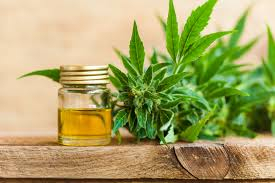Hemp Beer Now Legal in Florida, But Rules Apply

Florida’s new Hemp Law (Florida Law 2019-132) became effective July 1, 2019, and with it “hemp” beer (and other products) is now legal in Florida.
Hemp-derived ingredients have been legal under federal alcoholic beverage law since 2000, provided they are permitted under the laws of the relevant state. Until July 1, 2019, hemp-derived ingredients were not legal in Florida (see our blog post Marijuana Beer: Still Not Legal in Florida published June 3, 2018).
The Florida Hemp Law makes a significant change to the definition of “Cannabis”. Cannabis (that is, marijuana, which is still illegal) now excludes “hemp” as defined by the new law:
“Hemp” means the plant Cannabis sativa L. and any part of that plant, including the seeds thereof, and all derivatives, extracts, cannabinoids, isomers, acids, salts, and salts of isomers thereof, whether growing or not, that has a total delta-9 tetrahydrocannabinol [THC] concentration that does not exceed 0.3 percent on a dry-weight basis.
Florida Statutes Section 581.217(3)(d).
This is the same definition of hemp used in the federal 2018 Farm Bill (21 USC § 802(16)), which applies to the use of hemp under federal alcoholic beverage law. As a result, licensed alcoholic beverage manufacturers in Florida are generally permitted to use hemp as an ingredient in their products. But not without approval.
Hemp Alcoholic Beverages Requires TTB Formula Approval
In all cases, TTB formula approval is required for any alcoholic beverage that includes hemp, including products that are only intended for sale inside the state. According to the TTB’s 2019-1 Industry Circular, the TTB will require applicants to provide laboratory analysis of hemp ingredients to ensure that the ingredients are not controlled substances under federal law. Formulas that contain hemp-based ingredients other than hemp seed or hemp seed oil will also require favorable individual determination from the US Food and Drug Administration (FDA).
Rules for Distribution and Retail Sale of Hemp Extract
Florida beverage manufacturers should only use hemp-based ingredients that comply with Florida’s new hemp certification requirements. Hemp extracts distributed or sold in Florida must be accompanied by a certificate of analysis from an independent testing laboratory. The certificate must confirm (1) that the hemp extract contacts less than 0.3 percent total delta-9-tetrahydrocannabinol concentration on a dry-weight basis, and (2) the hemp extract does not contain contaminants unsafe for human consumption. In addition, the packaging for hemp extracts sold in Florida must include the following:
- A scannable barcode or quick response code linked to the certificate of analysis of the hemp extract by an independent testing laboratory;
- The batch number;
- The internet address of a website where batch information may be obtained;
- The expiration date;
- The number of milligrams of hemp extract; and
- A statement that the product contains a total delta-9-tetrahydrocoannabinol concentration that does not exceed 0.3 percent on a dry-weight basis.
Hemp Beverages and Laws are Still New
Alcoholic beverages containing hemp is still very new under both federal and state regulations. Expect that these regulations will continue to evolve. If you have questions or need help with your federal and state regulatory compliance, contact us at contact@brewerlong.com.
Because we’re attorneys: This blog post is provided on an “as is” and “as available” basis as of the date of publication. We disclaim any duty to update or correct any information contained in this blog post, including errors, even if we are notified about them. To the fullest extent permitted by law, we disclaim all representations or warranties of any kind, express or implied with respect to the information contained in this blog post, including, but not limited to, warranties of merchantability, fitness for a particular purpose, title, non-infringement, accuracy, completeness, and timeliness. We will not be liable for damages of any kind arising from or in connection with your use of or reliance on this blog post, including, but not limited to, direct, indirect, incidental, consequential, and punitive damages. You agree to use this blog post at your own risk. Regarding your particular circumstances, we recommend that you consult your own legal counsel–hopefully BrewerLong.

